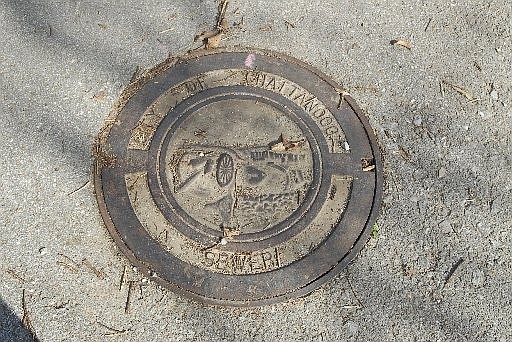NASHVILLE, Tenn. (AP) - Environmental groups are sounding alarms about a proposal that could prevent Tennessee's Department of Environment and Conservation from regulating how some types of sewage treatment systems are designed and built.
TDEC last year proposed minimum design standards for decentralized wastewater treatment systems. These systems are often used in rural or suburban subdivisions where municipal sewers are not available. They work by pumping liquid waste to a nearby facility where it is treated and then sprayed or dripped onto a field where the waste is taken up by plants.
Currently, a bill before the state Senate would take away TDEC's power to impose those design standards. Sponsor Sen. Steve Southerland, a Republican from Morristown, said the proposed TDEC rules were "going to be harmful to building." However, he said the language of the bill is still in flux and he is working with both sides to come up with a compromise.
Critics warn that if the systems are poorly designed, the waste can pool on the surface or even run off into nearby streams, causing bad smells and pollution.
"We're seeing streams listed for E. coli in areas where systems are not working well," said Amanda Garcia, an attorney with the Southern Environmental Law Center.
Fixing a failing system can be expensive, and the cost is often borne by the homeowners.
"The game is these private businesses want to not be regulated and make their money up front and then pass the problem on to the taxpayers," said Dorie Bolze, president of the Harpeth Conservancy, a nonprofit that works to protect clean water in Tennessee.
TDEC began working on rules for the systems in 2018, according to spokeswoman Kim Schofinski, who said in an email that some systems around the state "have produced situations that threaten public health and water quality."
The rules, which have not gone into effect, "would have established minimum design standards based on well-researched, reasonable requirements that the Department felt were necessary in order to continue approving the design of these systems," Schofinski wrote.
Jamie Roth and her husband live in Texas but own a cabin in the Smoky Mountains that is part of the Summit View subdivision. They had planned to move to Tennessee after retiring, but her experience with a failing sewer system and government inaction changed her mind.
"TDEC does not need less authority; it needs more," she said. "And it needs to exercise it."
TDEC inspectors in 2014 found wastewater overflowing into the community's pond. Roth said you could smell the sewage at times. To fix the problem, Tennessee Wastewater Systems, Inc. wanted to charge each of the 30-or-so cabin owners more than $10,000 to buy additional land for the drip field, Roth said. Roth and fellow members of the homeowners association board spent two years fighting the company. That included hiring their own engineer to show the expansion was unnecessary.
"It wasn't just us. It was going on in many, many subdivisions, particularly in Sevier County," Roth said. "I couldn't believe how slow Tennessee was to act, and TDEC."
"We were going to retire there, but after I saw how consumer unfriendly the state of Tennessee was - no," she said. "I'll stay in Texas."
Tennessee Wastewater Systems is the company with the largest number of these systems in the state. A review of TDEC data shows that over the past decade the company has received dozens of notices of violation, the majority in Sevier County. Many of the violations show high levels of E. coli, and some of the problems go uncorrected for years.
Jeff Risden, the company's registered agent, declined to address any general problems but said that the majority of the company's systems have no problems. Most problems are with older systems, he said, and often involve systems that are overloaded because builders built more or larger homes than the systems were designed for. He blamed the problems at Summit View on overbuilding.
In a July letter supporting TDEC's proposed rules, Tennessee Public Utility Commission Chair Robin Morrison wrote, "Like TDEC, the Commission has on multiple occasions addressed a variety of issues related to decentralized wastewater treatment systems." The costs to ratepayers "can be significant," she wrote.
Tim Schulz, a spokesman for the Utility Commission, said the private utilities that operate these decentralized sewer systems first get an operating permit from TDEC and then petition the commission to set rates for the service.
"We rely on TDEC to make sure the system is safe and reliable," Schwarz said. Without that assurance, "How would we really proceed?"
